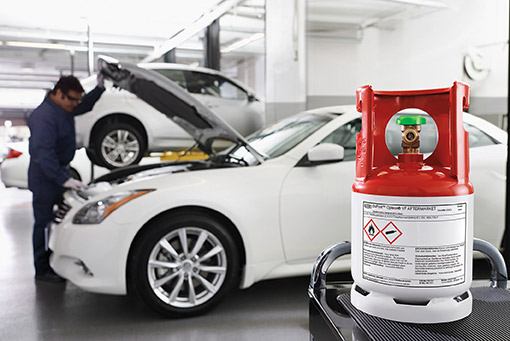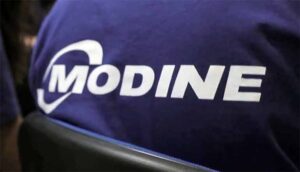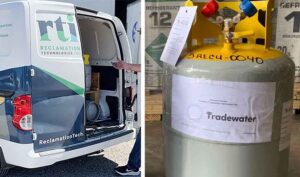EC rejects petition to ban R1234yf
14th December 2014 BELGIUM: A petition calling for a ban on the use of “dangerous substance” R1234yf in vehicle air conditioning systems has been rejected by the European parliament.
BELGIUM: A petition calling for a ban on the use of “dangerous substance” R1234yf in vehicle air conditioning systems has been rejected by the European parliament.
The petition from German citizen Matthias Weise referred to tests carried out by the University of Munich which showed that R1234yf posed a serious risk and alleged that the German authority responsible, the Kraftfahrt-Bundesamt (KBA), failed to comply with the applicable standards.
Germany is about to face the European court over its failure to implement the MAC Directive which calls for all new cars to use an air conditioning refrigerant with a GWP of less than 150. R1234yf was developed as the most likely replacement and has been accepted by the majority of car manufacturers. However, German manufacturer Daimler, after carrying out additional tests, concluded that 1234yf was not safe to use and would not be using it. The German government in failing to sanction Daimler and enforce the MAC directive has brought the country into direct conflict with Europe.
In rejecting the petition, the European Parliament pointed to the safety testing carried out by the SAE and the KBA, as well as the Commission’s subsequent review of the risk assessments and published test results, which found no evidence of a serious risk in the use of R1234yf in MAC systems “under normal and foreseeable conditions of use”.
The Commission considered that automotive manufacturers had the means to mitigate any inherent risks and noted that R1234yf is not the only fluid used in vehicles that is flammable or that may cause formation of dangerous emissions when burning.
In addition, it noted that there are already hundreds of thousands of vehicles of around 40 models using the new refrigerant by different manufacturers – two of which are German manufacturers.
In conclusion it found that the German authorities had acted adequately and in accordance safety standards. It found no evidence of a serious risk in the use of R1234yf in MAC systems.
As the MAC Directive only specifies that the refrigerant used must possess a GWP under 150, it was pointed out that there is no legal obligation for manufacturers to use R1234yf.
“Therefore,” it says, “there are no grounds for the Commission to propose or support, as requested in the petition “a ban on the use of dangerous air conditioning refrigerants in new vehicles”.”







